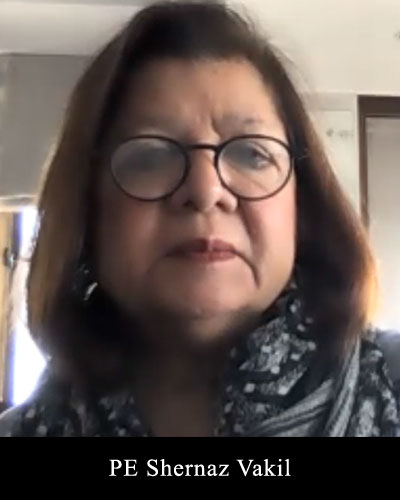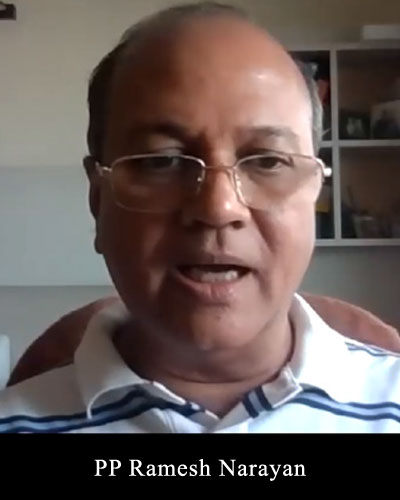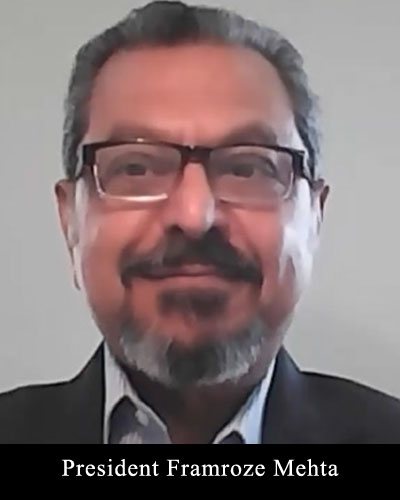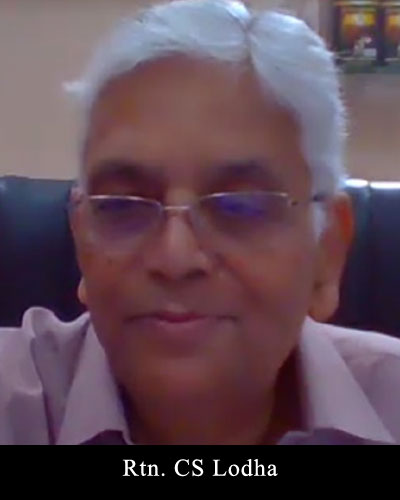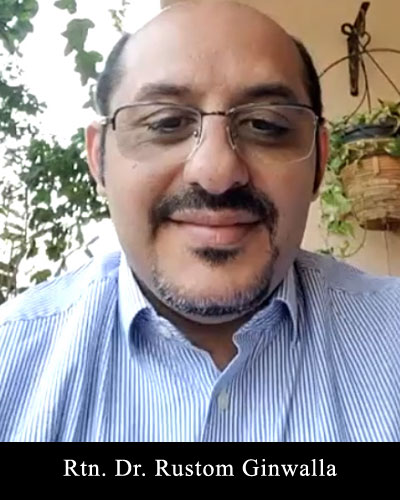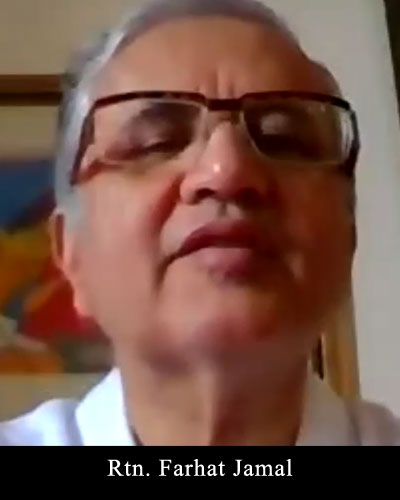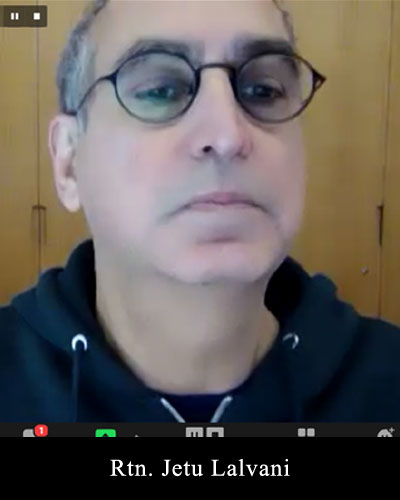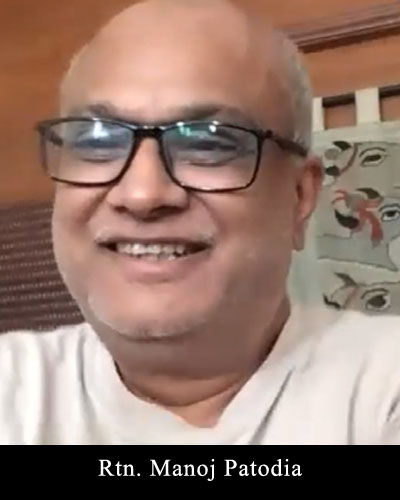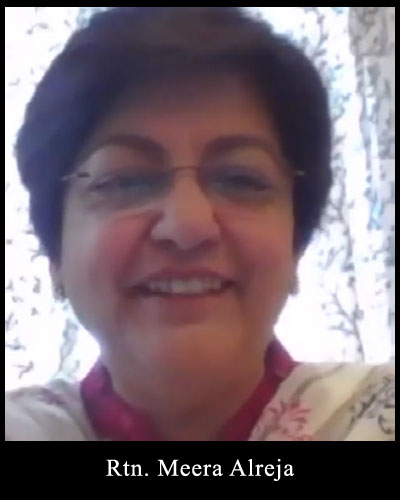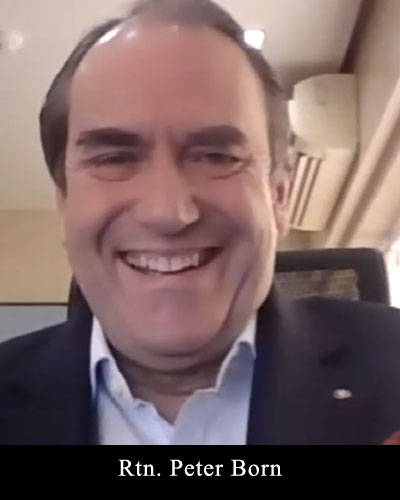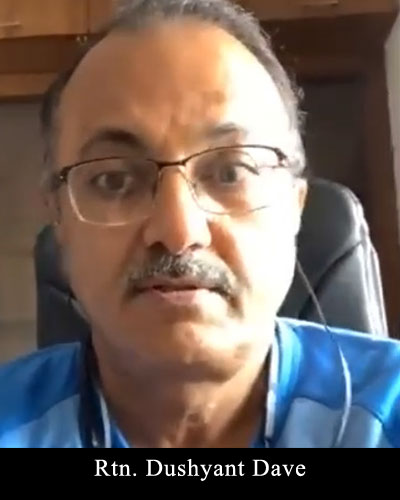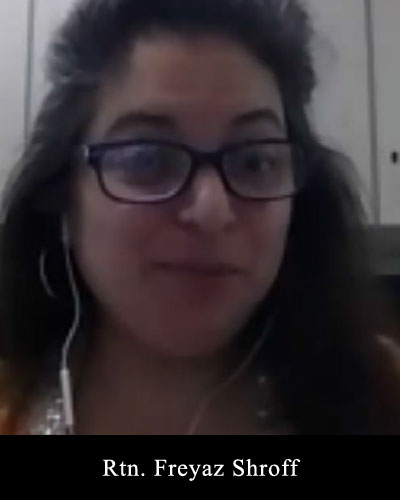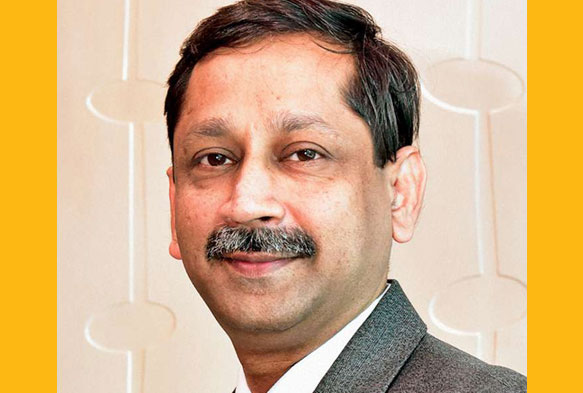
Shishir Joshi, Co-Founder & CEO, Project Mumbai Talks About Building A Brand In Times Of Crisis
THIS TIME, LAST YEAR, PROJECT MUMBAI WAS JUST ANOTHER NON-PROFIT ORGANISATION IN MUMBAI. WE WERE YOUNG; WHEN WE STARTED OFF, WE WERE THE MASTER MINDS BEHIND A COUPLE OF UNIQUE INITIATIVES LIKE SMILING SCHOOL PROJECT, WHICH IS AMBITIOUS AND ONE OF THE LARGEST ADOLESCENCE MENTAL HEALTH PROGRAMMES IN THE COUNTRY. THIS WAS FOR THE SCHOOL CHILDREN OF MCGM AND THANE MUNICIPAL CORPORATION, AND THROUGH IT WE REACH CLOSE TO 1400 SCHOOLS AND FOUR LAKH CHILDREN. OUR SECOND INITIATIVE WAS THE MUMBAI PLASTIC RECYCLATHON AND OURS WAS THE COUNTRY’S LARGEST CITIZEN-LED
RECYLATHON.
We didn’t dream of becoming this brand within two years. We did not even imagine of sitting across Asia’s most sought-after Rotary clubs and delivering award-accepting speeches. So, while this part of the journey has been a surprise, what was not a surprise, I must confess, was deciding to take the plastic recyclathon beyond Mumbai and Navi Mumbai, to other cities, in February 2020. The dates were announced, there were partners identified. Despite being a non-profit, we had earned place in the LIMCA book, a RISE Award for contribution to India’s social development and then all of us were caught by surprise when Covid 19 struck.
In March, one could suddenly sense the palpable unease amongst people, and we decided to immediately halt both our flagship initiatives. That meant shutting down the mental health programme with the schools being shut. In lockdown, people were naturally scared to step out which means that the plastic recylathon was suspended. So, what do we do? The classic answer would have been “to stop”. It was easiest to wait back and let the calamity escape. That, we examined, was nowhere close to our core values – the spirit of volunteering, the purpose and positive change to the
lives of people has been the intention. These were the values which were no longer confined to Project Mumbai, it was a shared legacy between us and citizens of Mumbai and MMR. Thanks to all the citizens, their spirit and willingness to volunteer we seemed to be ready to Covid 19. What do we do?
We were not sure but we felt stronger knowing that there were people with us. We did not have to reinvent the wheel or re-invent the brand, we just had to re-purpose our energy in new direction.
The spirit of volunteering remained the same and that is where our tag line came in, “Mumbai Ke liye kuch bhi karega”. Anything for the city – that started to resonate with people across suburbs, hyper local, volunteering network that we created. Please remember brand is not always about the logo, our logo got created sitting late in the evening, discussing what logo should we have? Our name, Project Mumbai also came about over a dinner conversation with my wife. So, remember that. It was not the hoardings that promoted us but the people who spoke about us. Each citizen was a walking, speaking manifestation of our work and this being collaborative, our work means their work because we always chose initiatives that were people’s pain points. It is not that we wanted to tread the path less taken. We wanted to reach out to communities more vulnerable than others. Over time we realised that people also gravitated towards us because we kept our ideas simple and different. There was something for everyone. There is something for teenagers as well.
I remember there was a senior person who volunteered with us and even now continues to do so. He described Project Mumbai as Mumbai’s local train. That is how he drew a comparison, anyone can travel, it is for people across age groups, there is no compulsion and yet there is an exciting journey, and you can hop in and hop off anytime. It is the spirit of being constant and always on the move that has led us to be what we are time and again. Even before the lockdown, when the government was working on medical structure, what kinds of hospitals, where do we have. I think only Kasturba Hospital was taking Covid 19 patients, we began focusing on senior citizens, the vulnerable people, people with disabilities and those who were compelled to remain indoors due to the lockdown. The need was so acute that we began getting calls from people across the world seeking help for their parents living in Mumbai by themselves or people living in one suburb unable to reach their parents in another suburb. We launched a facility to provide cooked meals, grocery and even medicines to the elderly.
I remember one elderly family telling us to stop giving groceries. Their maids had stopped coming and there was no one to cook meals. So, volunteers started cooking meals in their own homes and delivering them to senior citizens. And, well, what we got in return were the blessings and that is what we wanted. The numbers were high, the ideas that struck us all resonated in scale, scale happened and we also had our ears to the ground because once there is an army of citizens joining in a day, it is also not long to understand that people’s
anxiety levels had also increased.
One Sunday evening we sent a message on the group that we had to set up a mental health helpline, how many were interested? We only asked qualified, trained professionals and in three hours we had close to a hundred medical professionals who had put their hands up and said that they would like to volunteer. A hundred therapists, and a day later our mental health helpline was launched. So, wherever we felt there was a need, we built a solution. Scale was just part of the plan. Maximum members should benefit was our intended objective.
The second the mental health helpline for families with special needs came up, we realised that there are a lot people with senior citizens, children with challenges, parents were inside, how do they cope? So, therapists came in. We launched a helpline for domestic abuse, we realised that people were not speaking up but abuses were on the rise and that is what happened. By July, we realised that there are a lot of people who were left scared by the pandemic, we launched a grief counselling helpline also. People wanted to let out, people were mourning in private, they had nobody to come and console, they had seen deaths, calamities and they had no one to talk to. This also benefitted a lot of people. Each of these services are free but aimed at supporting people in corners.
We did not stop here. We did not know what was in store for us but we knew what people were going through. One time, between midnight 12 and 1 pm, I had close to 179 emails, saying I am in Khar or whatever place, I’d like to help, I’d like to volunteer. I have a phone, I have a mobile, every 20 seconds a new email from people who wanted to volunteer.
I am pleased to share that this morning I received an email from a person, a third-year student of dentistry, who wanted to volunteer. These are the kinds of emails we get day-in and day-out. That is when I also realised that there was a paucity of food, most people were indoors and that is when we co-founded a citizen-led movement called Khana-chahiye, a kit started as a food distribution drive along the Western Highway where we knew for sure that there would be people who were homeless and be in need for food.
From Bandra to Borivali, a long stretch of road, day one we distributed 1500 food packets, word spread and soon the government reached us because the canteens in the hospitals were shut down, so the government asked if we could provide food for doctors: not our expertise, but we did it, we got all the required information as to what food is required, how the packaging happens, what time should it be cooked, how community kitchens can help, etc. what started as 1500 meals, grew to 55 lakh meals by the end of July. Apart from the breakfast, lunch and dinner to healthcare workers in Sion, JJ, Cooper, KEM, St. George Hospital, Navi Mumbai Hospital, Nair and the Mantralaya Control room, food was going from the kitchen supported by Project Mumbai. We also heard different ideas which had impactful and focussed implement and of course scale, there has to be something for everyone.
Sometime in July, the UN wrote to us, conferring the Social Development Award for Covid-19, we were chosen among the top 50 from all over the world. That was a great honour, there was no looking back. We gave PPE kits, we gave khakhi PPE kits to policemen. It was an innovative approach, we soon became the go-to organisation, we realised the new emails receiving from people, saying can we do this in my area, and we said yes, let’s do that. If there is a problem, there is a solution. When we did the vanity vans, we didn’t do one, we did 17 all over the place, as many locations. Multinationals reached out to us to provide groceries, perishable items, sanitizers, masks, sanitary pad kits, and last week we distributed kits in Chhattisgarh as well. We have been joining dots with the states, local government, now we have become a collaborative platform and when the municipality and government reached for senior citizen helpline, we realised that collaboration is also the key. We need to work with the like-minded people but our
core value and focus remains that same.
Covid cases have peaked, we realised that there was also need of non-Covid hospitals, we got our volunteers and we reached to doctors asking for facilities for non-Covid, where they could treat fractures, pregnancies, dialysis, anything. We created a list and, we created solutions to the challenges and we found answers from the people themselves. The call centres for home quarantines were also helpful. We grew organically. Saying no is easy but to say yes, and rising to help for people’s problems is what is important. We had to rebuild the trust in people.
People have given us the energy. Mumbai has always been a charged city, we just harnessed it. We wanted to create something for everyone, women and men at home who wanted to cook some food, we picked up and provided to security guards and those who couldn’t step out. For youngsters we just asked them to call up the senior citizens in the area and ask how are you, would you like some groceries? A lot of senior citizens could do video chats, zoom call with some help. We just joined dots through action. For the last few years, we have been doing beautiful work around 41 stations stations. We installed separators in 5000 auto-rickshaws to protect passengers and drivers, post-August we created a data top-up plan for 40,000 underprivileged children. We are now stronger with the citizens and volunteers.
Had we not got financial support, as mentioned we did raise Rs 30 crore, but for an organisation like ours, we were just 14-16 months old when Covid happened. Teenagers raised money for us, so, it is about wanting to do something. Except food and purchasing equipment, most of our ideas required people support and participation which we had in plenty. We are still not eligible for CSR but even the most rigidly compliant organisations chose us as beneficiaries and I am grateful to them. Most of them who donated in Project Mumbai – would they donate to an entity they didn’t trust? I don’t think so. We built that transparency and credibility; we are bound by the value and spirit of volunteering and trust. We have launched Project Mumbai at the core value of strength of people, last week India’s valuable crowdfunding platform voted us as the best start-up NGO of 2020.
To share the spirit of Mumbai, this happened in April when all our volunteers were all over the place and were connected on WhatsApp, I got a message from Kandivali resident, in urgent need of medicine for Chemo. He was unable to step out, he reached to us through website, the medicine was available only in Dadar. One of my lady volunteers in Mahim said she would help, and she went to Dadar by car, picked up the medicine, drove to Khar, where the second volunteer from the team was waiting. He picked up the medicine, went to Andheri and handed over to the third volunteer, he picked up some fruits, veggies and on his bike drove to Kandivali and handed it to the Kandivali young man. This is what we managed to do and as we proudly say, ‘Mumbai ke liye kuch bhi karega’.
Ramesh Narayan: Mr Shishir not only collects plastic and carves beautiful and useful things from them, but he has also been instrumental in making pencil poxes out of recycled plastic for our Bhavishya Yaan kids. So, thank you!
Yes, collaboration with Rotary has been fruitful. We are also hoping to create an entire garden using only recycled items where we are trying to inculcate behavioural change. So, the next time you see that the spoon you donate makes a bench, there is an impact.
What is your experience in terms of the involvement of government in this cause?
There are good people every where and we manage to spend time in finding them. The best part about government people is that they get transferred. So, if we found a person whom we don’t see working, we wait for some time and then the next one comes in his place. We have been fortunate and we are sure that good deeds will lead to good people.
Any particular way where Rotary can help?
To get volunteers all over the place, consistently by being a custodian making volunteering a core programme. Get exciting volunteering opportunities. Rotary being a rich organisation, we can get mass volunteering opportunities. Being a custodian of their lane, take care of senior citizens, find ambassadors, and many more places where we can use the volunteers.
What about the issue of depression and anxiety, has the Project Mumbai team catered to that?
It has been the strongest pillar of our organisation. If there is something going to stay, it is going to be mental health problems. We are launching adolescent helplines for 14 to 21. So, banega emotionally fit India, is what we are working upon.

